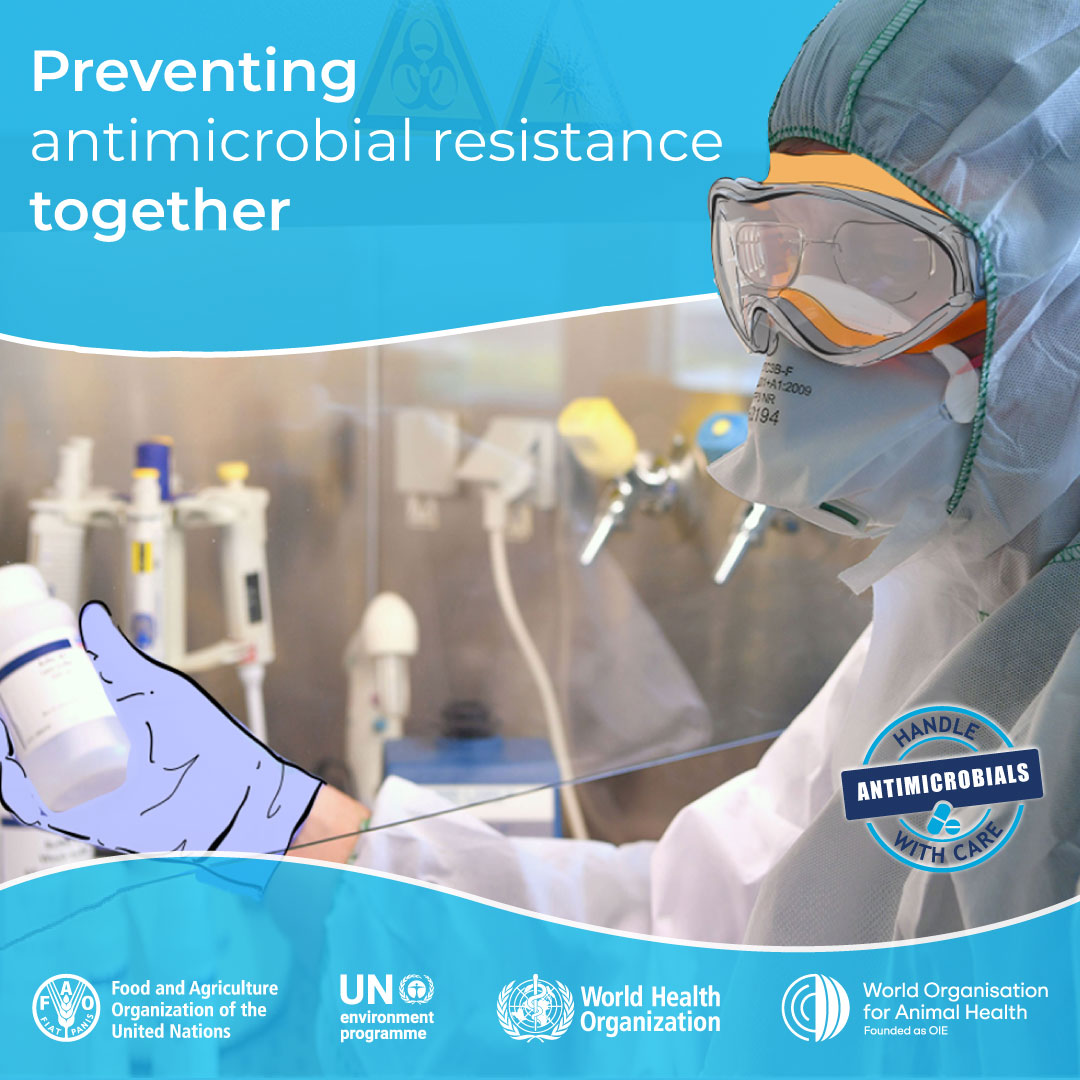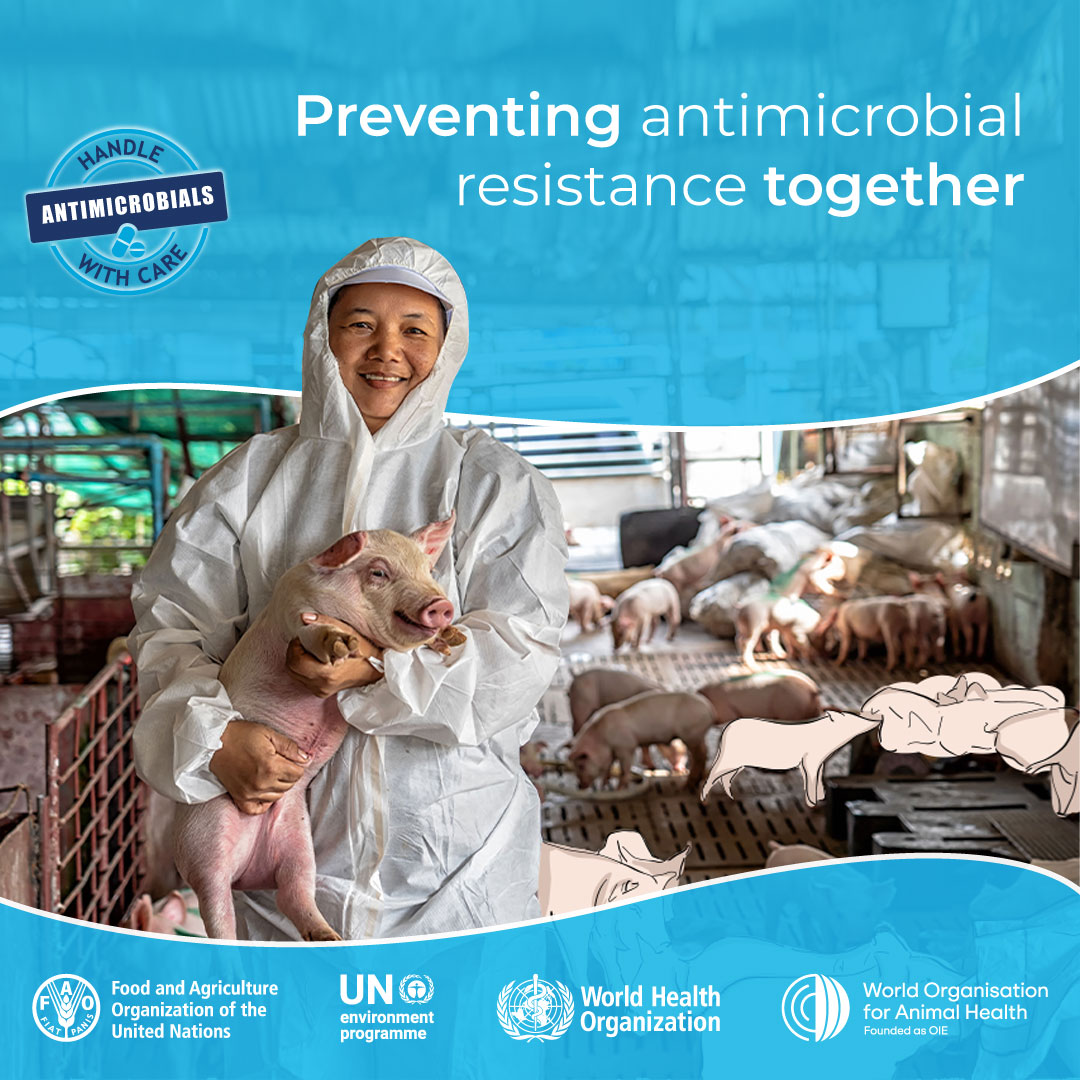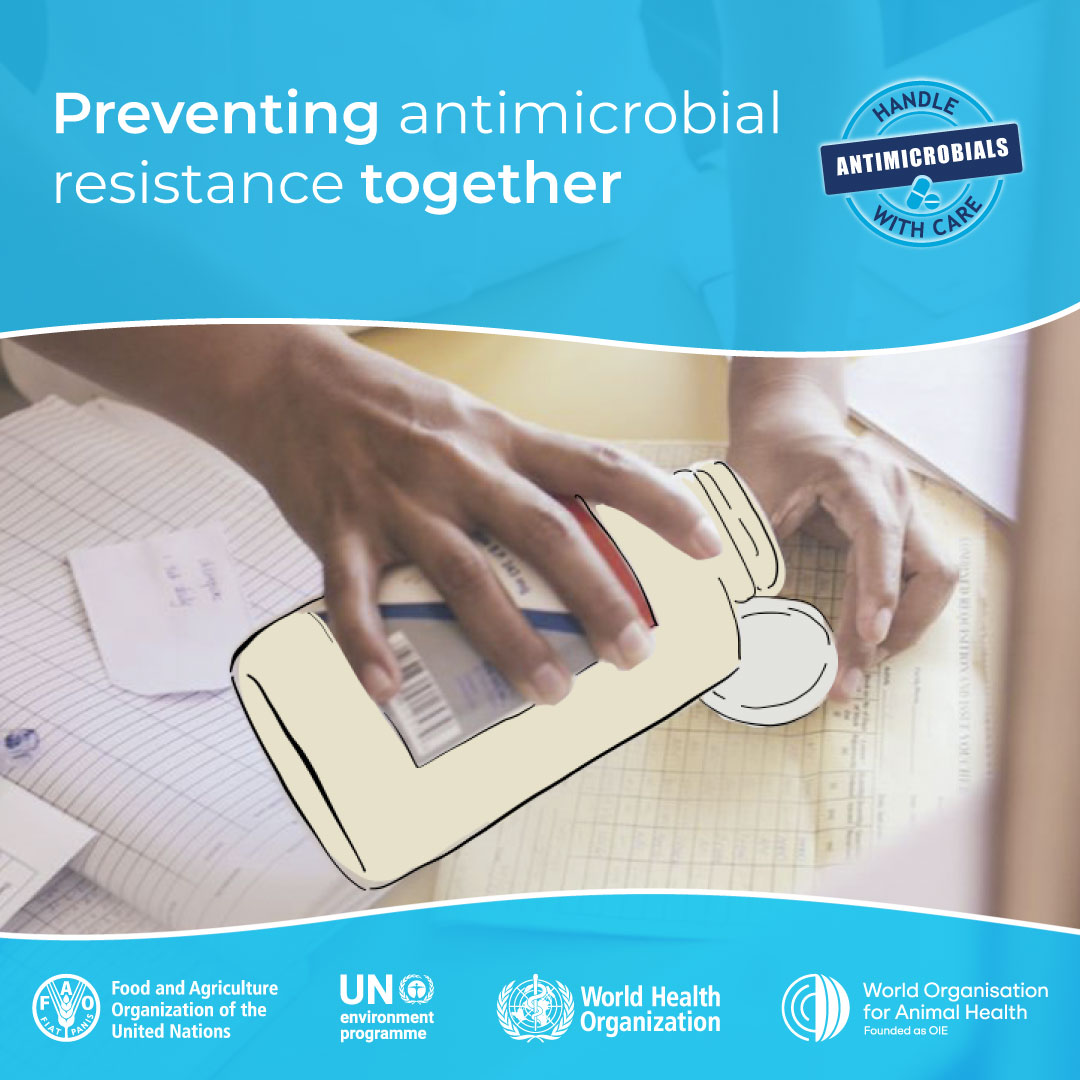
"World Antimicrobial Awareness Week 2022" is a global campaign that is celebrated every year from 18 to 24 November. This campaign is supported by 4 international organizations such including the World Health Organization, the Food and Agricultural Organization of the United Nations, the World Organization for Animal Health, and the United Nations Environment Program in collaboration with the governments and other participating organizations. The main goal of the campaign is to improve public awareness of microbial resistance and promote good practice among the public, medical professionals and policy makers to raise awareness and understanding of AMR and promote best practices among One Health stakeholders.
Microbes include bacteria, viruses, fungi, and parasites, and any agents that eliminate and prevent from microorganisms or inhibit their growth and development are called antimicrobials.
Antimicrobial resistance (AMR) occurs when bacteria, viruses,
fungi and parasites change over time and no longer respond to medicines, making infections harder to treat and increasing the risk of disease spread, severe illness and death. Misuse and overuse of antimicrobials in humans, animals and plants are
accelerating the development and spread of AMR worldwide.
Antibiotics are the most well-known antimicrobials used for humans and animals. As a result of drug resistance, antimicrobials become ineffective, and infections become difficult or
impossible to treat, increasing the risk of disease spread. There is risk of being exposed to drug-resistant microbials when people consume meat, milk, and vegetables, and it can be spread into the environment such as soil and water through the feces of animals.
This year, the theme of WAAW is “Preventing Antimicrobial Resistance Together.” We call on all sectors to encourage the prudent use of antimicrobials and to strengthen preventive measures addressing AMR, working together collaboratively through a One Health approach. In Mongolia, human and animal health and environmental sectors of Mongolia are jointly participating in the campaign. Within the scope of the campaign, several joint and separate activities are planned namely, "Healthy Livestock - Mongolia's Wealth" series of programme on AMR will be broadcasted via MNB channel, various information and education materials on AMR will be shared and disseminated through mass media and social network for the general publics, and a discussion meeting on AMR among the senior students of the Mongolian National University of Medical Sciences and the Mongolian University of Life Sciences , discussion sessions to provide information and raise awareness among high school students in cooperation with the General Education Department, health institutions to conduct training and advertising at their institutions, translation and distribution of AMR posters, the first meeting of the interdisciplinary committee in order to ensure the participation of multisector.
“DID YOU KNOW” FACTS ON AMR
- As of 2019, more than 5 million people worldwide died from drug-resistant bacterial infections, of which 1.3 million died directly from AMR.
- It is estimated that AMR will reduce global gross domestic product by 3.8% by 2050. If AMR continues to spread uncontrolled, it will cost US$3.4 trillion in annual GDP losses over the next 10 years. 24 million people are at risk of falling into extreme poverty
- It takes 10-15 years to one discover new antibiotic spending more than 1 billion USD.
- Disposing of leftover or unused medication in the garbage or flushing the toilet can increase the spread of AMR.
- Keeping animals healthy is an important step in reducing antimicrobial resistance.
- Hand hygiene before cooking or preparing food can reduce the spread of drug-resistant antimicrobials.
- Human-caused pollution increases the spread of antimicrobial resistance in the environment.
- Up to 60% reduction in the use of antibiotic treatment for diarrhea can be achieved by improving drinking water hygiene and safety. Ensuring the hygiene and safety of drinking water prevents from infection with drug-resistant antibiotics and improves the quality of life and reduces health costs.
Actions to reduce the spread of AMR:
- Reduce population density and improve waste and sanitation management
- Strengthen infection prevention and control systems in human health, livestock farms, and food industries
- Improve water sanitation, disinfection, and sterilization, and promote voluntary immunization
- Introduction of good practices in food and agricultural production



